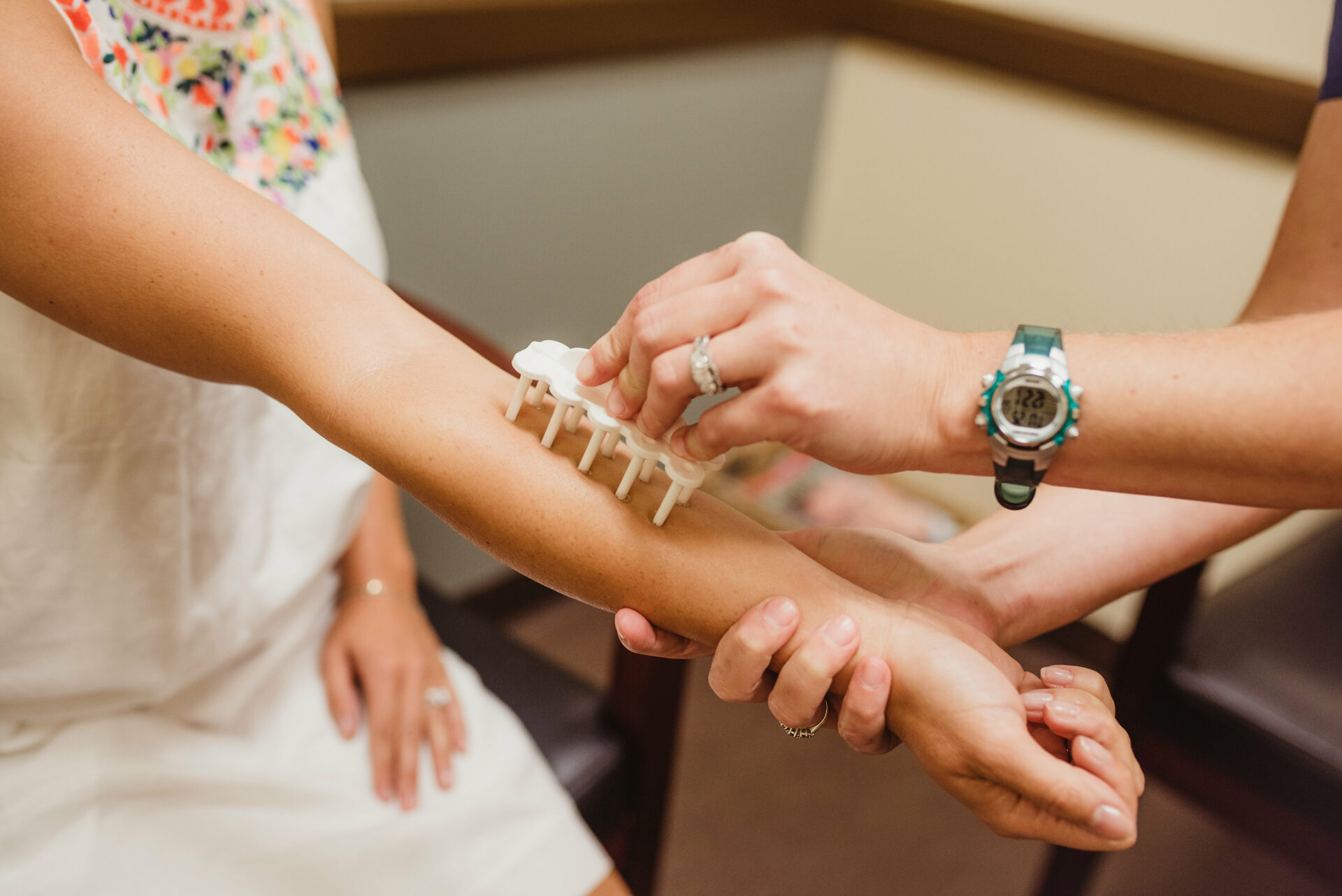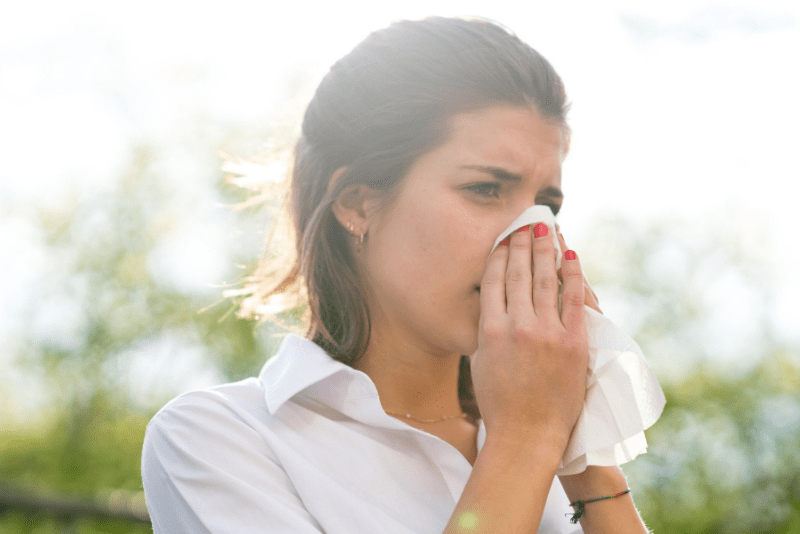Got a case of the sniffles that you can’t get rid of? Experiencing anaphylaxis from certain foods? If these are becoming frequent issues, you may be experiencing allergic reactions. While elimination techniques can be helpful in identifying allergens, it can take a long time and may not produce definitive conclusions. Thankfully, skin testing methods have been developed that not only provide you with speedy results, but also have the capacity to test a wide array of allergens.
A board-certified allergist may recommend allergy skin testing if a patient experiences symptoms of an allergic reaction following inhalation, ingestion or direct contact with a potential allergen. To further dive into skin testing and what it is, here are five things you should know.
1. There are three methods to skin testing
When planning for a skin test, you have options! Based on the allergic reaction you are experiencing, there are three different methods that your board-certified allergist might consider to help identify your allergies. Testing times can vary depending on the type of allergy test your allergist recommends.
- The skin prick test: This form of testing is typically performed by a nurse or doctor in the clinic setting. This testing is affected by anti-histamines or medications that have anti-histamine effects and therefore patients must be off those medications for this testing to be accurate. The test involves using a lancet or skin prick device with allergen extract on the tip. The prick allows allergen extract to be introduced to the top layer of skin. After approximately 15 minutes, if the patient is allergic, a red, raised and itchy bump will appear (similar to a small mosquito bite).
- The intradermal (skin injection) test: Instead of pricking extracts into the skin, the intradermal test injects a small amount of allergen extract under the skin using a needle injection. This method may be needed to identify allergens to certain insect venoms (like fire ants or wasps, for example), certain medications (like penicillin, for example) or certain inhalant allergens.
- The patch test: This method is used to identify contact allergens that can cause contact dermatitis, a condition that stimulates an allergic reaction with a substance that comes in contact with the skin. A board-certified allergist will work with the patient to identify potential contact allergens. Patches containing the allergens are applied to the back and kept on for 48 hours. After the patches are removed at 48 hours, the skin is observed for potential reactions and then assessed again at 96 hours. The skin will become red and itchy in the patch areas where a contact allergen was identified and then the patient is provided a safe product list based on their reactions.
2. This method is relatively pain free
Despite common assumptions, the process itself is not painful. Since your body is being exposed to very small amounts of allergens, extreme reactions are very rare. While you may experience mild discomfort and itching, it is a generally low risk testing method. If you are experiencing any of the following symptoms, make sure to alert your doctor immediately:
- Trouble breathing
- Fever
- Trouble swallowing
- Dizziness
- Large rashes
- Intense pain at testing site
- Abnormal and increased swelling
3. It tests for a wide range of allergens
Skin testing is known for covering a lot of ground. Here are the most common allergens that are tested using this method:
Indoor allergens
- Mold
- Dust mites
- Pet dander
Outdoor allergens
- Mold
- Tree pollen
- Grass pollen
- Weed pollen
Food allergens
- Wheat
- Dairy
- Eggs
- Soy
- Tree Nuts
- Fish
- Shellfish
Chemical Allergens (via Patch Testing)
- Fragrances
- Dyes
- Product stabilizers
- Other chemical-based ingredients
4. When you should take a skin test
If you are experiencing allergic-type reactions, it is important to schedule a visit with a board-certified allergist who can determine if a skin test is needed to identify possible allergies. Symptoms to look out for include:
Respiratory Symptoms
- Runny or itchy nose
- Itchy, dry eyes
- Watery eyes
- Nasal congestion
- Coughing
- Difficulty swallowing
Skin symptoms
- Itchiness
- Rash
- Eczema
- Swelling
Abdominal Symptoms (primarily from food allergies)
- Cramping
- Diarrhea
- Vomiting
5. When you shouldn’t take a skin test
On the other hand, some circumstances can cause complications in skin testing. If you have a skin condition such as psoriasis or eczema, testing in an area of the skin that is inflamed can affect the results, making it difficult to determine true allergic reactions. To diagnose allergies without your skin condition interfering, a board-certified allergist may recommend a blood test.
If you are taking certain medications including antihistamines and those that treat allergies, you will not be able to take the test until you are off the medications for a certain period of time. Talk with your doctor to identify which medications interfere with the testing and when to stop taking them.
If you have suffered a severe allergic reaction in the past, it is best to speak with your board-certified allergist about the safety of different types of allergy skin testing. Thankfully, skin tests are performed in a safe environment with emergency equipment on hand if needed, but testing recommendations will be determined once the allergist has discussed the history with the patient.
Identify your allergens so we can find you a solution!
At Charleston Allergy and Asthma, we are experts when it comes to allergies. It’s in our name! If you are experiencing allergic reactions, but don’t know the source, schedule an appointment with us today! Our board-certified allergists are well equipped to properly identify and treat any allergies you might have.




